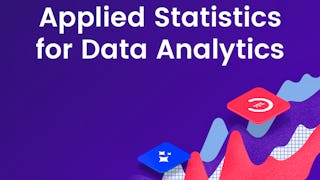This course aims to help you to draw better statistical inferences from empirical research. First, we will discuss how to correctly interpret p-values, effect sizes, confidence intervals, Bayes Factors, and likelihood ratios, and how these statistics answer different questions you might be interested in. Then, you will learn how to design experiments where the false positive rate is controlled, and how to decide upon the sample size for your study, for example in order to achieve high statistical power. Subsequently, you will learn how to interpret evidence in the scientific literature given widespread publication bias, for example by learning about p-curve analysis. Finally, we will talk about how to do philosophy of science, theory construction, and cumulative science, including how to perform replication studies, why and how to pre-register your experiment, and how to share your results following Open Science principles.



Improving your statistical inferences

Instructor: Daniel Lakens
Top Instructor
Access provided by Coursera Learning Team
77,489 already enrolled
(797 reviews)
Skills you'll gain
- Bayesian Statistics
- Scientific Methods
- Statistical Modeling
- Statistical Analysis
- Statistical Hypothesis Testing
- Data Literacy
- Statistics
- Probability & Statistics
- Statistical Reporting
- Statistical Inference
- Data Sharing
- Research
- Quantitative Research
- Probability Distribution
- Sample Size Determination
- Statistical Methods
Details to know

Add to your LinkedIn profile
24 assignments
See how employees at top companies are mastering in-demand skills

There are 8 modules in this course
What's included
4 videos5 readings5 assignments
What's included
4 videos4 readings4 assignments
What's included
4 videos4 readings3 assignments
What's included
3 videos2 readings3 assignments
What's included
3 videos3 readings4 assignments
What's included
3 videos2 readings2 assignments
What's included
3 videos1 reading1 peer review
This module contains a practice exam and a graded exam. Both quizzes cover content from the entire course. We recommend making these exams only after you went through all the other modules.
What's included
3 assignments
Earn a career certificate
Add this credential to your LinkedIn profile, resume, or CV. Share it on social media and in your performance review.
Instructor

Offered by
Why people choose Coursera for their career




Learner reviews
797 reviews
- 5 stars
88.45%
- 4 stars
9.91%
- 3 stars
1.12%
- 2 stars
0.25%
- 1 star
0.25%
Showing 3 of 797
Reviewed on Jun 19, 2018
This course changed my concepts not only about statistics but about research and science. Daniel Lakens is a fantastic lecturer and scientist. I can't recommend this course enough.
Reviewed on Mar 25, 2019
Excellent course. I improved my statistical knowledge and learned more about bayesian inference. Also, I learned something about how to pre-register a research and its benefits of doing so.
Reviewed on Aug 16, 2021
Really good course! The course reviews several common statistical methods and tools used in research and strive to help the student on their interpretation.
Explore more from Data Science

Eindhoven University of Technology

Johns Hopkins University

DeepLearning.AI

University of Leeds

Open new doors with Coursera Plus
Unlimited access to 10,000+ world-class courses, hands-on projects, and job-ready certificate programs - all included in your subscription
Advance your career with an online degree
Earn a degree from world-class universities - 100% online
Join over 3,400 global companies that choose Coursera for Business
Upskill your employees to excel in the digital economy

